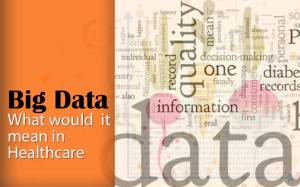As we draw closer towards Oct. 1, 2014 the last date for compliance to ICD-10, achieving the target is proving to be an arduous task for the practices. The root cause of the problems being encountered has been identified as the lack of communication and coordination between practices and their partners which include clearinghouses, Electronic Health Record and Practice Management Vendors. The required software updates and testing which need to be done have not been happening at the pace at which they are required to. Since there are other federal policies which are scheduled to be implemented around that time, Stage 2 of Meaningful Use Incentive Program and Health insurance exchanges, the matter is getting complicated even further.
Practices fear being compelled to use systems which are not full proof and might potentially lead to their payment getting stuck or even worse not getting paid for some of the services rendered post Oct. 1, 2014. At the current stage if one were to actually make an analysis of where the project stands the results might not be too encouraging. There is a potential risk of disruption taking place in the healthcare system unless fast paced corrective measures are taken up. Of the many concerns which have been brought out through various surveys, the most disheartening has been the lack of confidence amongst the stakeholders to meet the deadline. They seem to have almost reconciled to the fact that an extension is the only way out. For the practices, the overall cost seems to be a concerning factor. Not only will they have to account for the upgrades which will need to be made in the EHR and the PMS but also the required training and productivity cost involved. Also extensive changes are expected to happen in the mode of operation simply to accommodate dealing with 5 times the number of codes in ICD-10 compared to its earlier version.
Not only will they have to account for the upgrades which will need to be made in the EHR and the PMS but also the required training and productivity cost involved. Also extensive changes are expected to happen in the mode of operation simply to accommodate dealing with 5 times the number of codes in ICD-10 compared to its earlier version.
The healthcare software development practices are under a lot of duress for having to handle activities such as coding, documentation and administrative tasks as a result of the changes which are expected to revolutionize the healthcare landscape. There is a strong belief that all is taking a toll on patient care which is where most of the time and energies are supposed to be channelized. Since there is no alternative to this, many practices are in the process of devising ways by which they feel they will be able to handle the situation moving forward .Some of the common approached being followed include adoption of better information systems, augmenting workforce, better billing and collection process. A recent survey done by the American Health Information Management Association, to gauge ICD-10 preparedness revealed certain startling facts. One-fourth of the companies have not even formed the steering committee considered as one of the first steps in the process. Also, fifty percent are stuck in the beginning phases of the migration. Followed by some analysis, AHIMA identified some of the focus areas which need to be addressed immediately if the timelines are to be met. They include
- Computer-assisted coding (CAC)
- Clinical documentation improvement (CDI)
- Education and staffing.
If these are not to be implemented religiously then it would only result in last minute rushes in either installing software upgrades or having to switch vendors both of which not necessarily can promise results given the lack of time. The national coordinator for Health IT however is not acknowledging any possibilities of an extension and feels that since there will be a lot of business proposition for healthcare vendors in helping physicians adopt ICD-10, the dynamics will ensure that the target is achieved on time. Also, in one of his addresses he emphasized on the greater benefits the various initiatives are going to bring in the industry. He feels that one has to look at them not just in terms of the investments that are being made but in terms of the transformation that will be brought about.
We provide healthcare software maintenance services. If you would like to know more about our certified healthcare app developers, please get in touch with us at Mindfire Solutions.